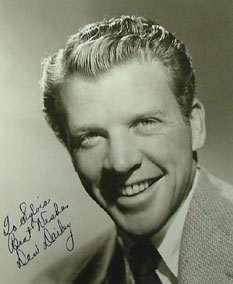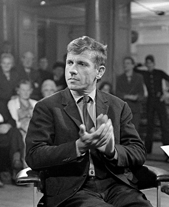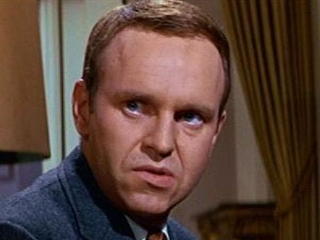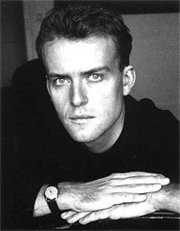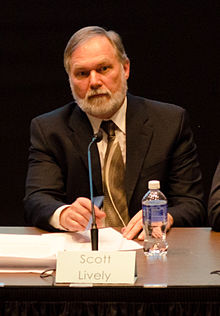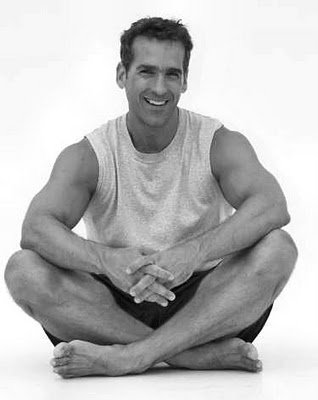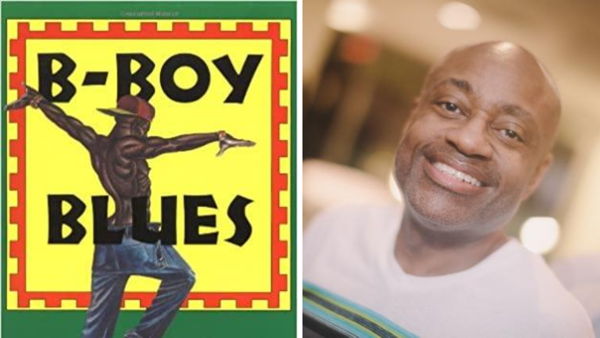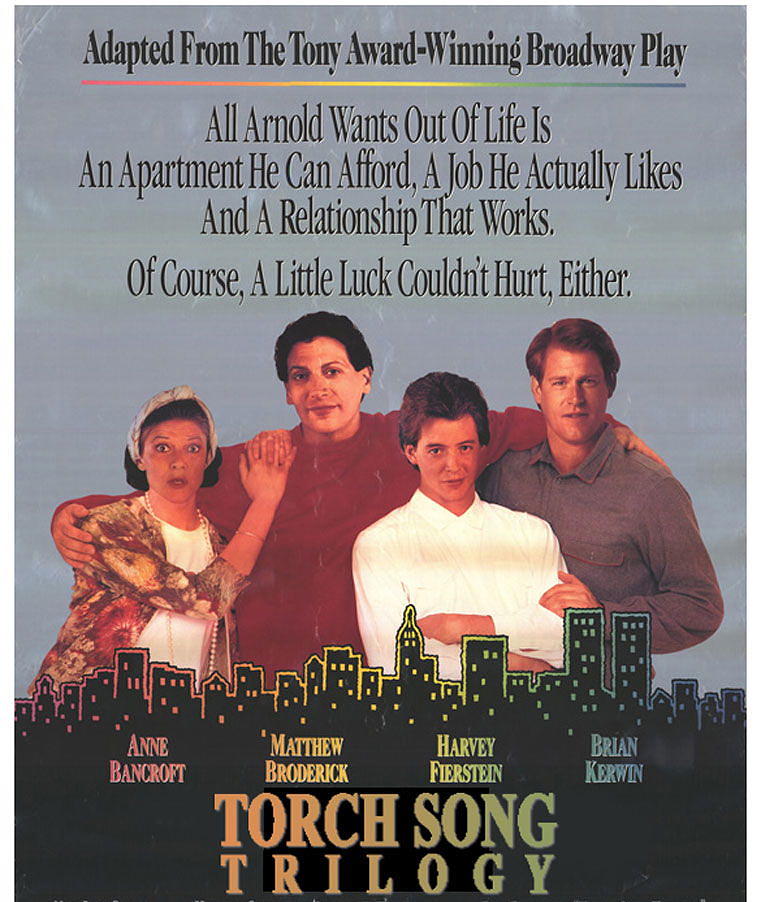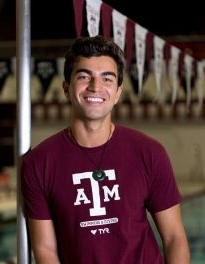|
presents THIS DAY IN GAY HISTORY based on: The White Crane Institute's 'Gay Wisdom', Gay Birthdays, Gay For Today, Famous GLBT, glbt-Gay Encylopedia, Today in Gay History, Wikipedia, and more …
Collected by Ted December 14 [{(o)}]|[{(o)}]|[{(o)}]|[{(o)}]| [{(o)}]|[{(o)}]
c.530 – Venantius Fortunatus (d.circa 600/609) was a Latin poet and hymnodist in the Merovingian Court, and a Bishop of the early Catholic Church. He was never canonised but was venerated as Saint Venantius Fortunatus during the Middle Ages. Born in Treviso, near Ravenna in Italy, he spent his time as court poet to the Merovingians. After visiting the tomb of St. Martin of Tours at St. Hilary at Poitiers, he decided to enter a monastery. He continued to write poetry, some of which have a permanent place in Catholic hymnody, for instance the Easter season hymns "Vexilla Regis" and the "Pange Lingua" (Sing, O my tongue, of the battle). Three or four years before he died he was made bishop of Poitiers. Although never canonized, he was venerated as a saint in the medieval church, and his feast day is still recognized on 14th December each year. Like Paulinus of Nola, St Venantius's poetry also includes some decidedly secular verse of the romantic sort. That this celebrates male love is clear from its inclusion in the Penguin Book of Homosexual Verse. "Written on an Island off the Breton Coast" You at God's altar stand, His minister And Paris lies about you and the Seine: Around this Breton isle the Ocean swells, Deep water and one love between us twain. Wild is the wind, but still thy name is spoken; Rough is the sea: it sweeps not o'er they face. Still runs my lover for shelter to its dwelling, Hither, O heart, to thine abiding place. Swift as the waves beneath an east wind breaking Dark as beneath a winter sky the sea, So to my heart crowd memories awaking, So dark, O love, my spirit without thee. Fortunatus died in the early 600s. He was called a saint after his death, but was never formally canonized.
1791 – Today is the birthday of the Irish poet Charles Wolfe (d.1823). Born at Blackhall, County Kildare, Wolfe attended Trinity College, Dublin between 1809 and 1814 and was ordained as a Church of Ireland priest in 1817. He is remembered for his poem "The Burial of Sir John Moore after Corunna", written in 1816 and much collected in 19th and early 20th century anthologies. Wolfe's sexuality is often disputed, many believe he was homosexual. He certainly had an extremely intense friendship with the Rev. Thomas Meredith for whom he wrote two gushing epithets. Wolfe died from tuberculosis caught from a cow at the age of 32. Yes. A cow. Even into the mid-20th century tuberculosis was commonly transferred via milk.
1901 – King Paul of Greece (d.1964) reigned as king of Greece from 1947 to 1964. He may have been bi-sexual. Paul was born in Athens, the third son of King Constantine I of Greece and his wife, Princess Sophia of Prussia. He was trained as a naval officer. On 9 January 1938, Paul married Frederika of Hanover at Athens. They had three children. Before his marriage he is alleged to have invited the homosexual literary muse, Denham Fouts, on a cruise of the Aegean Sea, perhaps because they were lovers. However, Fouts's friend John B. L. Goodwin said Fouts often made up stories about his life, and literary critic Katherine Bucknell thought many of the tales about him were myth. During most of World War II, when Greece was under German occupation, he was with the Greek government-in-exile in London and Cairo. From Cairo, he broadcast messages to the Greek people. Paul returned to Greece in 1946. He succeeded to the throne in 1947, on the death of his childless elder brother, King George II.
1902 – Frances Bavier (d.1989) was an American stage and television actress born on this date; Originally from New York theatre, Bavier worked in film and television from the 1950s until the 1970s. She is best known for her role of Aunt Bee on The Andy Griffith Show and Mayberry R.F.D. from 1960 to 1970. Aunt Bee logged more Mayberry years (ten) than any other character. She won an Emmy Award for Outstanding Supporting Comedy Actress for the role in 1967. Bavier was additionally known for playing Amy Morgan on It's a Great Life (1954-1956). Bavier had roles in more than a dozen films, as well as playing a range of supporting roles on television. Career highlights include her turn as Mrs. Barley in the classic 1951 film The Day the Earth Stood Still. In 1955, she played the rough and tough "Aunt Maggie" Sawtelle, a frontier Ma Barker-type character, in the Lone Ranger episode "Sawtelle's Saga End". In 1957, she played Nora Martin, mother of Eve Arden's character on The Eve Arden Show, despite the fact that Arden was less than six years younger than Bavier. That same year, Bavier guest-starred in the eighth episode of Perry Mason as Louise Marlow in "The Case of the Crimson Kiss". She was in the episode of Make Room for Daddy, which launched the characters of "Andy Taylor," with Andy Griffith and Ron Howard as "Opie Taylor." She played a character named Henrietta Perkins. The episode introduced The Andy Griffith Show, and Bavier was cast in the role of Aunt Bee. Bavier had a love-hate relationship with her famous role during the run of the show. As a New York City actress, she felt her dramatic talents were being overlooked, yet after playing Bee for eight seasons, she was the only original cast member to remain with the series in the spin-off, Mayberry R.F.D., for two additional seasons. Bavier was easily offended on the set of The Andy Griffith Show and the production staff took a cautious approach when communicating with her. Series star Andy Griffith once admitted the two sometimes clashed during the series run. On a 2003 appearance on Larry King Live, Griffith said Bavier phoned him four months before she died and apologized for being "difficult" during the series run. Bavier confessed in an interview with Bill Ballard for Carolina Camera that "it is very difficult for an actress ... to create a role and to be so identified that you as a person no longer exist and all the recognition you get is for a part that is created on the screen." While the character of "Aunt Bee" was thought of as “everyone’s aunt” by fans, off the set, Bavier was a far different personality than the woman that she portrayed on television. Her being a lesbian was an open secret to the Andy Griffith Show cast and crew, and in Hollywood gay circles. She dated some women but passed them off as “good friends”. In that era, an actor could never really be candid about their sexuality. "Aunt Bee" might have been a gentle soul, a woman who was primarily focused on the kitchen, but in real life, the actor who played her was a fierce, driven career woman.
1903 – David Lewis (d.1987 ), born David Levy, was a Hollywood film producer who produced such films as Dark Victory (1939), Arch of Triumph (1948), and Raintree County (1957). He was also the longtime companion of director James Whale from 1930 to 1952. Although they were separated at the time of Whale's death in 1957, Lewis later released the contents of Whale's suicide note. Lewis was portrayed in the 1998 film Gods and Monsters by David Dukes.
1914 – The Louisiana Supreme Court rules that the 1896 oral sex law "perhaps" criminalizes cunnilingus, and does criminalize fellatio.
1915 – The American actor and dancer Dan Dailey was born on this date (d.1978). Dailey was born and raised in New York City and appeared in vaudeville before his Broadway debut in 1937 in Babes in Arms. In 1940, he was signed by MGM to make movies and, although his past career had been in musicals, he was initially cast as a Nazi in The Mortal Storm. However, the people at MGM realized their mistake quickly and cast him in a series of musical films. He served in the United States Army during World War II, was commissioned as an Army Officer after graduation from Signal OCS at Ft Monmouth, NJ, after which he served with distinction until the war ended. Then returned to more musicals. Beginning with Mother Wore Tights (1947) Dailey became the frequent and favorite co-star of movie legend Betty Grable. His performance in their film When My Baby Smiles at Me in 1948 garnered him an Academy Award nomination for Best Actor. In 1950, he starred in A Ticket to Tomahawk, often noted as one of the first screen appearances of Marilyn Monroe, in a very small part as a dance-hall girl. In 1953, Dailey starred in Meet Me at the Fair. One of his notable roles was in There's No Business Like Show Business (1954) which featured Irving Berlin's music and also starred Ethel Merman, Marilyn Monroe, Donald O'Connor, and Johnnie Ray. In 1950 the notorious "Confidential" Magazine (the National Enquirer of its day) printed a picture of him wearing female clothing. His studio, 20th Century Fox, rushed to repair the damage; gossip columnists were told that Dailey had simply been snapped on his way to a fancy dress party. But Andre Previn, the composer, tells in his biography No Minor Chords how Dailey turned up drunk and in female clothing for the press screening of It's Always Fair Weather in 1954. In the mid '70s, gossip columnist Joyce Haber was on television promoting a novel about Hollywood. Asked to dish some gossip, she mentioned that one of the top dancer-actors was a closet transvestite with a costly and beautiful wardrobe that many women would envy. He had three failed marriages with women, but also was known to hang out in Gay bars. After the suicide of his only son, he was an embittered alcoholic. He died three years later, just after he playing boyfriend Clyde Tolson in (the unintentionally hilarious *and bad*) The Private Files of J.Edgar Hoover (1977). He appeared in over 60 films in his career.
1915 – The California Supreme Court reverses the sodomy conviction of a man for consensual relations after a landlady witnessed him and his partner enter a bathroom together. The Court feels that the evidence is all hearsay.
1918 – After two years of wearing men's clothing, Mary Bertha Schmidt, known as Mister Schmidt, is taken to court in St. Louis, Missouri on cross-dressing charges. The judge thought Mister Schmidt, who was dapperly dressed, looked "very nice" and declines to fine Schmidt. Mister Schmidt marries his cousin Mary Ana Assade. A Los Angeles Herald article from 1918 quoted Schmidt as saying, "I always hated men, as did Mary also, so wo both decided to get married. The ceremony was performed by a justice of the peace and we bought a nice little home in South St. Louis. We were living together very happily until the police interfered."
1923 – Gerard Reve (d.2006) was a Dutch writer. He started writing as Simon van het Reve and adopted the shorter Gerard Reve in 1973. Together with Willem Frederik Hermans and Harry Mulisch, he is considered one of the "Great Three" of Dutch post-war literature. His 1981 novel De vierde man (The Fourth Man) was the basis for Paul Verhoeven's 1983 film. Reve was one of the first homosexual authors to come out in the Netherlands. He often wrote explicitly about erotic attraction, sexual relations and intercourse between men, which many readers considered shocking. However, he did this in an ironic, humorous and recognizable way, which contributed to making homosexuality acceptable for many of his readers. Another main theme, often in combination with eroticism, was religion. Reve himself declared that the primary message in all of his work was salvation from the material world we live in. Reve's erotic prose deals partly with his own sexuality, but aims at something more universal. Reve's work often depicts sexuality as ritual. Many scenes bear a sado-masochistic character, but this is never meant as an end in itself. Reve's literary career was marked by many controversies. Early on, the Dutch ministry of culture intervened when Reve was to receive a grant, citing the obscene nature of his work. A member of the Dutch senate, the Calvinist senator Hendrik Algra, spoke on the same subject in a plenary debate. That was the beginning of a string of scandals that didn't stop until the Belgian King Albert II refused to hand out a literary prize to Reve because Reve's partner had been charged with indecencies with minors. Reve sometimes welcomed the publicity, but also complained about his continual struggle with the authorities, public opinion and the press. Gerard Reve was prosecuted in 1966 for allegedly breaking a law against blasphemy. In Nader tot U he describes the narrator's love-making to God, a visitor to his house incarnated in a one-year-old mouse-grey donkey. In April 1968 he was acquitted by the High Council. During the last years of his life, he began to suffer from Alzheimer's disease, and he died of it on 8 April 2006 at the age of 82.
1932 – George Furth (d.2008) was an American librettist, playwright, and actor. Born in Chicago with the name of George Schweinfurth (he dropped the "schwein" on becoming an actor). Furth made his Broadway debut as an actor in the 1961 play A Cook for Mr. General, followed by the musical Hot Spot two years later. He was also known for his collaborations with Stephen Sondheim: the highly successful Company, the ill-fated Merrily We Roll Along and the equally ill-fated drama, Getting Away with Murder. Furth penned the plays Twigs, The Supporting Cast and Precious Sons, and wrote the book for the Kander and Ebb musical, The Act. Company has been revived many times over the years, sometimes updated to the Aids era, although requests from producers to give the show a homosexual slant were turned down by the unmarried Sondheim and Furth, although both of them were gay. Frequently cast as a bespectacled, ineffectual milquetoast, Furth appeared in such films as The Best Man, Myra Breckinridge, Hooper, Blazing Saddles, Oh God!, Shampoo, The Cannonball Run, Young Doctors in Love, Doctor Detroit, Bulworth and Butch Cassidy and the Sundance Kid. His many television credits include Tammy, McHale's Navy, Ironside, I Dream of Jeannie, That Girl, Green Acres, The Monkees, Batman, The Odd Couple, Bonanza, Happy Days, All in the Family, Murphy Brown, L.A. Law, Dr. Quinn, Medicine Woman, Murder, She Wrote, Little House on the Prairie, Love, American Style, Adam-12, F Troop and the made-for-TV film The Scarlett O'Hara War, in which he portrayed famed film director George Cukor. He was a regular in the cast of the short-lived 1976 situation comedy The Dumplings. He adapted his play Twigs as a 1975 television production, starring Carol Burnett. He also worked as a voice actor in several episodes of the animated television series The Adventures of Don Coyote and Sancho Panda for Hanna-Barbera Productions. One of Furth's last writing projects was a foray into an area where he had not previously endeavored. Furth penned the lyrics for a musical revue, with music by Doug Katsaros. Furth and Katsaros shaped the work with San Francisco director Mike Ward into "The End - a new musical revue". The piece was performed at San Francisco's New Conservatory Theatre Center during the summer of 2004 and was billed as a "Pre-U.S. Tour Workshop Production". The piece was reworked twice, with the title changing to Last Call and Happy Hour, respectively. Furth died on August 11, 2008 at the age of 75. The exact cause of death is unknown, although he had been hospitalized for a lung disease at the time.
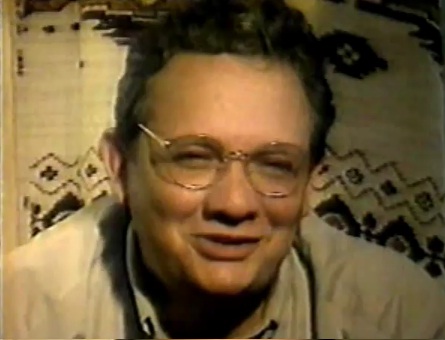
1946 – Herbert Eustáquio de Carvalho, known as Herbert Daniel (d.1992), was a Brazilian writer, sociologist, journalist and guerrilla member of the armed struggle against the Brazilian military dictatorship installed in the country between 1964-1985. Formerly a medical student at the Federal University, he became a guerrilla in armed opposition to the Brazilian government when the country was controlled by the military dictatorship. Using the code namme Daniel, he integrated the paramilitary organizations POLOP, Colina, VAR Palmares and VPR. According to his fighting companion, Alfredo Sirkis, Daniel was, during this period, the intellectual leader of the VPR. It was in the latter organization that he participated in the kidnappings of the German ambassador Ehrenfried von Holleben in June 1970 and the Swiss ambassador to Brazil, Giovanni Bucher. One of the few members of the armed struggle to escape from prison and torture, he went into exile in 1974, living with his male partner in Portugal, where he returned to the study of medicine, and in France, where he practiced journalism. Herbert Daniel was the last exile of the military regime established in 1964 to be amnestied. He returned to Brazil in 1981, under the principle of redemocratization. He was a member of the Partido dos Trabalhadores (PT) and participated in the founding of the Green Party with other PT dissidents. Daniel was also an activist for the ecology and rights of homosexuals, having himself a twenty year relationship with the graphic artist Cláudio Mesquita. Daniel wrote the books Passage to the Next Dream, My Body Would Give Romance and Life Before Death, among others. He died in 1992, in Rio de Janeiro, a victim of complications caused by AIDS. The think tank linked to the Green Party is called Herbert Daniel Green Foundation in his honor. His underground codename, "Daniel", was eventually incorporated into his name for professional and public use.
1951 – Today's the birthday of American actor and puppetteer Paul Zaloom. He's best known for his role as the character Beakman on the television show Beakman's World, based on the Universal Press Syndicate syndicated comic strip You Can With Beakman and Jax created by Jok Church. Paul Zaloom was educated at The Choate School (now Choate Rosemary Hall) in Wallingford, Connecticut, and began his entertainment career at Goddard College with artists in residence the Bread and Puppet Theater, a troupe specializing in self-invented, home-made theater. One of their performance locations was Coney Island, where Zaloom is said to have given advice to the "unofficial Mayor of Coney Island", Dick Zigun, on how to bring in the crowds. In his solo work he utilizes found-object animation, in which he takes objects as varied as coffee pots and humidifiers and turns them into elements of political satire. His personal politics are liberal; he has referred to Elizabeth Dole and Margaret Thatcher as "right wing nut jobs." He has also been a fierce critic of U.S. foreign policy since the early 1980s, having helped to lead a disarmament march during the Cold War. In 1992 Zaloom starred in the cable TV children's science program Beakman's World. The show moved to CBS in 1993 and aired for four seasons. Zaloom has also written, designed and performed eleven full length one-man shows, including Fruit of Zaloom, Sick But True, Mighty Nice, and The Mother of All Enemies, the latter a shadow-puppet show featuring traditional Middle-Eastern comic puppet character Karagoz. His latest effort tackles social issues such as privacy, the war on terrorism, and discrimination based on sexual orientation and ethnicity. Aside from shadow puppetry, Zaloom's idiosyncratic work utilizes techniques such as overhead projection, government document expose, cantastoria picture performance, toy theater, as well as hand, rod, found object, and dummy puppets. Zaloom has described himself as "a Gay, Buddhist, agnostic, quaker, secular humanist knucklehead."
1955 – Hervé Guibert (d.1991) was a French writer and photographer. The author of numerous novels and autobiographical studies, he played a considerable role in changing French public attitudes to AIDS. He was a close friend and lover of Michel Foucault. Guibert was born in Saint-Cloud, Hauts-de-Seine, to a middle-class family and spent his early years in Paris, moving to La Rochelle from 1970 to 1973. In his teens Hervé Guibert lied about his age to work at the magazine 20 ans eventually leading to a job with Le Monde. After working as a filmmaker and actor, he turned to photography and journalism. In 1978, he successfully applied for a job at France's prestigious evening paper Le Monde and published his second book, Les aventures singulières (published by Éditions de minuit). In 1984, Guibert shared a César Award for best screenplay with Patrice Chéreau for L'homme blessé. Guibert had met Chéreau in the 1970s during his theatrical years. Guibert's writing style was inspired by the French writer Jean Genet. Three of his lovers occupied an important place in his life and work: Thierry Jouno, director of an institute for the blind whom he met in 1976, and which led to his novel Des aveugles; Michel Foucault, whom he met in 1977; and Vincent Marmousez, a teenager of fifteen who inspired his novel Fou de Vincent. In January 1988 Guibert was diagnosed with AIDS. From then on, he worked at recording what was left of his life. In June the following year, he married Christine, the partner of the late Thierry Jouno, so that his royalty income would eventually pass to her and her two children. In 1990, Guibert publicly revealed his HIV status in his roman à clef "À l'ami qui ne m'a pas sauvé la vie" (published in English as To the Friend Who Did Not Save My Life). Guibert immediately found himself the focus of media attention, featured in newspapers and appearing on several television talk shows. Two more books also detailing the progress of his illness followed: Le Protocole compassionnel (published in English as The Compassionate Protocol) and L'Homme au chapeau rouge (published in English as The Man In The Red Hat), which was released posthumously in January 1992, the same month French television screened La Pudeur ou l'impudeur, a home-made film by Guibert of his last year as he lost his battle against AIDS. Almost blind as a result of disease, he attempted to end his life just before his 36th birthday, and died two weeks later.
Lively has called for the criminalization of "the public advocacy of homosexuality" as far back as 2007, and is directly involved in anti-gay legislation in Uganda. He appeared in Russian television channel Russia-1's documentary titled Sodom in September 2014. He is frequently interviewed in broadcast media about his involvement in the ex-gay movement and opposition to LGBT advocacy. According to a January 2011 profile, Lively "has not changed his view that gays are "agents of America's moral decline", but has refocused his approach to fit his flock in Springfield, Massachusetts" and "is toning down his antigay rhetoric and shifting his focus to helping the downtrodden". On August 14, 2013, a federal judge ruled that the case against Scott Lively, by the Center for Constitutional Rights (CCR) on behalf of Sexual Minorities Uganda (SMUG), a Uganda-based coalition of LGBT rights and advocacy groups, can move forward against him. This is a first-of-its kind case in which the lawsuit alleges that Lively's actions over the past decade, in collaboration with some Ugandan government officials and Ugandan religious leaders, are responsible for depriving LGBT Ugandans of their fundamental human rights based solely on their identity, which the lawsuits alleges falls under the definition of persecution under international law and is a crime against humanity. This effort resulted in the introduction of the Anti-Homosexuality Bill which Lively allegedly helped engineer. Along with Kevin E. Abrams, Lively co-authored the book The Pink Swastika. Abrams and Lively state in the preface that "homosexuals [are] the true inventors of Nazism and the guiding force behind many Nazi atrocities."
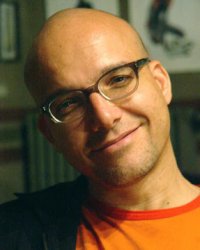
1959 – Robert Hilferty (d.2009) was a New York based journalist, filmmaker and AIDS activist. Hilferty was born in Teaneck and raised in Weehawken, New Jersey. He majored in music at Princeton University, graduating in 1982. Hilferty was a resident of New York City's East Village neighborhood for most of his adult life. Hilferty began his career in 1988 working as a production assistant for Robert Altman on The Caine Mutiny Court-Martial and Tanner '88. Although he was HIV-negative, Hilferty became an AIDS activist following the death of his lover, Tom Hopkins. He shot video footage at Act Up's December 1989 St. Patrick’s Cathedral demonstration which he used to create the documentary Stop the Church. PBS initially planned to broadcast the film in August 1991 but then canceled the broadcast, citing the film’s numerous denunciations of the Roman Catholic Church and calling it "inappropriate for distribution because of its pervasive tone of ridicule."[3] Hilferty responded that PBS's decision was a "cowardly and unprincipled" form of censorship. Various local PBS stations, including New York's WNET, aired it in protest. Hilferty followed Stop the Church with I Wrapped a Giant Condom Over Jesse Helms' House which documented a September 1991 demonstration by TAG, an activist group related to Act Up. From the mid-1990s until his death, Hilferty worked as a journalist for publications such as Artforum, Bloomberg News, Gramophone, New York Magazine, The New York Times, Opera News, Playbill, Stagebill and The Village Voice, writing about acting, architecture, classical music, fashion and gardening. While working for Bloomberg TV, he conducted on-camera interviews with Marisa Tomei, Mickey Rourke, Philip Roth, Renée Fleming, William Gibson and others. His companion in the early 1980s was film scholar Tom Hopkins who died of AIDS in 1985. His companion in 1988 was AIDS activist and writer Peter Staley who commented that although Robert was HIV-negative, "he helped me live and love without stigma." Hilferty's partner from 1995 until his death was costume designer Fabio Toblini. Hilferty committed suicide on July 24, 2009, following complications from a concussion in March 2009.
In addition to his writing career, Bob Paris remains a committed civil rights advocate as well as a motivational speaker, model and actor. In 1998, he made his New York stage debut, starring at Carnegie Hall opposite Bea Arthur, Sandy Duncan and Tyne Daly in the Broadway musical, Jubilee as the character Mowgli. He is one of the subject of photographer Herb Ritts' gorgeous book, Duo. His official website is: http://www.bobparis.com/
1966 – James Earl Hardy, born in Bedford-Stuyvesant, Brooklyn, New York, is an American playwright, novelist, and journalist. Generally considered the first to depict same-sex love stories that take place within the hip-hop community, his writing is largely characterized by its exploration of the African-American LGBTQ experience. Hardy's best-known work is the B-Boy Blues series. The B-Boys Blues series comprises six novels and one short story. B-Boy Blues was adapted into a play in 2013 and into a film, directed and co-written by Jussie Smollett, in 2021. Hardy attended undergraduate school at St. John's University and afterward went on to graduate from the Columbia Graduate School of Journalism in 1993. From 1992 to 1994, he wrote for Entertainment Weekly as a music journalist.

1968 – Yotam Ottolenghi is an Israeli-English chef, restaurateur, and food writer. He is the co-owner of six delis and restaurants in London, as well as the author of several bestselling cookbooks, including Ottolenghi (2008), Plenty (2010), Jerusalem (2012) and Ottolenghi Simple (2018). Ottolenghi was conscripted into the Israeli Defense Forces in 1989, serving three years in IDF intelligence headquarters. He then studied at the Adi Lautman Interdisciplinary Program for Outstanding Students of Tel Aviv University, where in 1997, he completed a combined bachelor's and master's degree in comparative literature; his thesis being on the philosophy of the photographic image. While working on his thesis, Ottolenghi served as a night copy editor for Haaretz. In 1997, Ottolenghi and his then-partner Noam Bar moved to Amsterdam, where he edited the Hebrew section of the Dutch-Jewish weekly NIW and considered getting his doctorate in comparative literature. Instead, he moved to London to study French cooking at Le Cordon Bleu. Ottolenghi met his partner Karl Allen in 2000; they married in 2012 and live in Camden with their two sons, Max and Flynn. In 2013, Ottolenghi "came out as a gay father" in a Guardian essay that detailed the lengthy process of conceiving Max via gestational surrogacy, an option that he believes should be more widely available to those who cannot conceive naturally. Ottolenghi served as a pastry chef at three London restaurants: the Michelin-starred Capital Restaurant, Kensington Place, and Launceston Place in Kensington New Town. In 1999, he became head pastry chef at the artisanal pastry shop Baker and Spice, where he met the Palestinian chef Sami Tamimi, who grew up in Jerusalem's Old City. Ottolenghi and Tamimi bonded over a shared language—Hebrew—and a joint "incomprehension of traditional English food". His debut cookbook Ottolenghi was published in 2008 and has sold over 100,000 copies. Six volumes have followed: the all-vegetable cookbooks Plenty (2010) and Plenty More (2014); Jerusalem (2012); Nopi (2015); the dessert cookbook Sweet (2017); and Ottolenghi Simple (2018). Ottolenghi's bestselling cookbooks have proven influential, with The New York Times noting that they are "widely knocked-off for their plain-spoken instructions, puffy covers, and photographs [that Ottolenghi] oversees himself, eschewing a food stylist". In 2014, the London Evening Standard remarked that Ottolenghi had "radically rewritten the way Londoners cook and eat", and Bon Appetit wrote that he had "made the world love vegetables".
1971 – On this date the American Gay rights activist group Gay Activists Alliance protest in front of the Suffolk County, New York police headquarters after two members were arrested for sodomy.
1987 – The U.S. Court of Military Appeals upholds the sodomy conviction of a Navy officer based on his partner's diary "found" by investigators.
1988 – The movie version of Harvey Fierstein's play "Torch Song Trilogy" opened in New York.
1989 – Amini Fonua is a Tongan competitive swimmer. Fonua was born and raised in Ponsonby, Auckland, New Zealand to Tongan lawyer Sione Fonua and British-born mother Julie. He holds dual Tongan and New Zealand citizenship. His family includes two other sisters. Fonua's swimming career began at the Roskill Swimming Club based at Cameron Pool in Auckland, coached by Sandra Burrow from 1999–2007. He broke numerous Auckland and New Zealand Age Group Records under Burrow's tenure. He then moved to West Auckland Aquatics in 2007, and was coached by Donna Bouzaid. In the Fall of 2008, Fonua enrolled at Texas A&M on a swimming scholarship. While at Texas A&M he was a peer voted Team Captain, Big XII Conference Champion, NCAA All-American, and recipient of The Aggie Heart Award. He graduated with a Telecommunication and Multi-Media degree, with a Minor in Creative Writing in May 2013. He was the first Tongan swimmer to win a gold medal in international competition, when he took gold in the 50 metre breaststroke at the 2010 Oceania Swimming Championships. In preparation for the 2012 London Olympics Fonua was trained by New Zealander and designated head coach for Tonga, Jon Winter. He served as his nation's flag-bearer in the 2012 Summer Olympics Parade of Nations. As a swimmer at the 2012 Summer Olympics, he competed in the Men's 100 metre breaststroke, failing to reach the semifinals. Fonua made an international comeback at the 2015 Pacific Games in Port Moresby, Papua New Guinea. He created history by becoming the first ever Tongan athlete to ever win 3 Gold medals at a Pacific Games by sweeping the Breaststroke events, setting 2 Games Records in the process (50 m and 100 m Breaststroke). He is the only Tongan athlete in history to ever hold dual Oceania and Pacific Games titles. Fonua is openly gay and an advocate for LGBT rights.
1990 – The ACLU filed a lawsuit alleging that Hawaiian corrections officers violated an inmates civil rights by testing him for HIV without consent.
1990 – At the University of Massachusetts in Amherst, the board of governors voted unanimously to remove the Lesbian Bisexual Gay Alliance's two ex officio positions. Officials said it had nothing to do with discrimination, that the board wanted to remove all ex officio positions and replace them with elected officials. However, no other ex officio positions were eliminated.
1990 – In New York, Alfred University faculty approved a resolution urging officials to ban ROTC because of the military's anti-gay policies.
1993 – In Denver Colorado, Judge Jeffrey Bayless ruled Amendment 2 unconstitutional. The amendment to the Colorado state constitution sought to eliminate all gay rights laws in the state and prevent any more from being passed.
[{(o)}]|[{(o)}]|[{(o)}]|[{(o)}]| [{(o)}]|[{(o)}] |
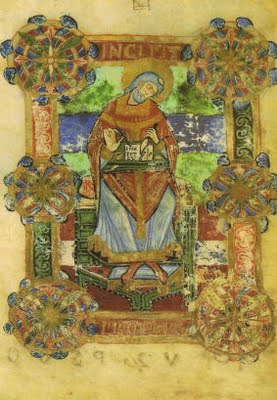
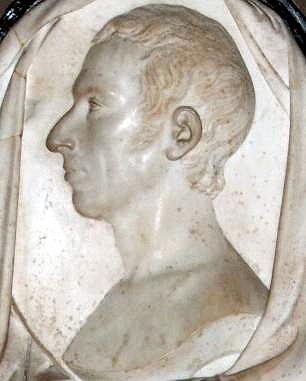
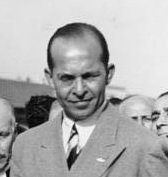
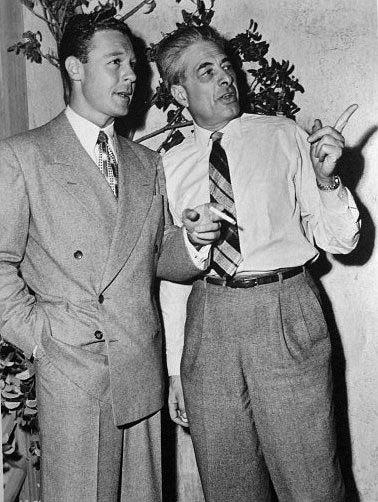 David Lewis (L) with Producer Irving Pichel
David Lewis (L) with Producer Irving Pichel